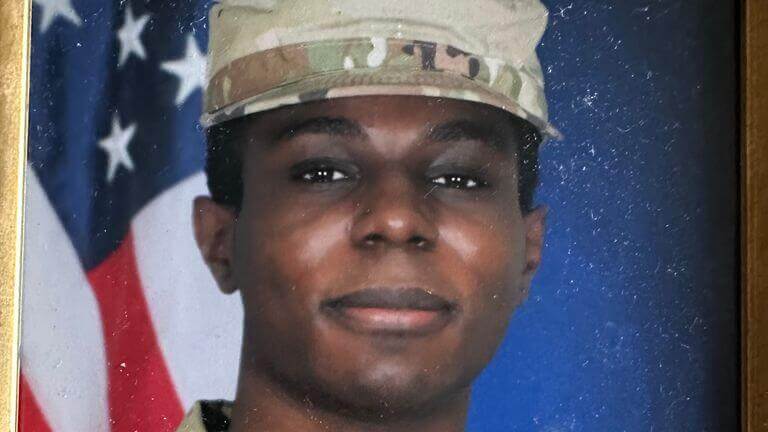Last month, an American soldier facing disciplinary action fled across the inter-Korean border into North Korea, and is believed to be in North Korean custody.
The US Army identified the soldier as Private Travis T. King, who enlisted in 2021 and was set to return to his home unit in Texas, where he could possibly face further action for assault in a foreign country. The soldier had already finished serving detention in South Korea for assault.
He was taken to the airport by the US military, where he appeared to have changed his mind and took a civilian tour of the Panmunjom truce village, during which he crossed the Military Demarcation Line.
In its first public update on King, North Korea said that the soldier defected to escape the “inhuman maltreatment and racial discrimination” in the US army.
While the secretive regime has given no information on how it plans to treat King. Pyongyang only mentioned that King had admitted to “illegally” entering the country.
Previous Defections to North Korea
As unusual as the incident is, King is not the first American to have defected to North Korea. In fact, while rare, several US soldiers have defected to the hermit country in the last six decades.
In 1962, Pvt. Larry Allen Abshier defected out of fear of being court-martialled by the US. Abshier and two other American defectors at the time became famous for portraying evil Americans in a 20-part film series called “Nameless Heroes.” In 1972, North Korea offered them citizenship.
The Panmumjom joint security area on the border of North and South Korea.
— AFP News Agency (@AFP) August 16, 2023
The US has said Travis King travelled to the DMZ and crossed the border into North Korea intentionally and without authorisation. Pyongyang said Wednesday that King "admitted that he illegally intruded" pic.twitter.com/nfJkVqtgiE
In 1965, Sgt. Charles Robert Jenkins bolted across the border while drunk. After eight years of imprisonment with other American defectors, Jenkins later appeared in propaganda movies and leaflets, and taught English to North Korean spies and military cadets.
He was released to Japan to join his wife in 2004 — more than 39 years after he first crossed the border.
What could happen to King?
So, what will North Korea do with the first US soldier in decades to flee into its territory?
Since there is little recent precedent for such a situation, possibilities of the country’s next steps vary widely.
The DPRK on Wednesday said an American soldier who had crossed into DPRK territory on July 18 has admitted to illegally intruding into the North and expressed a willingness to seek refuge in the North or a third country, state media reported. The soldier, Private Travis T. King,…
— CGTN (@CGTNOfficial) August 15, 2023
Propaganda
Yang Moo-jin, president of the University of North Korean Studies in South Korea, told Time magazine that it’s “highly unlikely” that Pyongyang would pass up the opportunity to use King’s case for the propaganda of a US soldier who voluntarily entered the country. Yang added that King could also be used as a bargaining chip to seek concessions from Washington.
On the flip side, “If they [North Korea] decide that he’s not a good story, they may just return him so that this doesn’t exacerbate already fragile relations [with the US],” Jenny Town, director of the North Korea-focused 38 North website, told the New York Post.
High Cost of Living
Thae Yong Ho, a former diplomat at the North Korean Embassy in London who defected to South Korea in 2016, said that it is unclear whether North Korea would want to hold King for too long, considering his rank in the military has only given him access to low level of US military intelligence and considering the high costs of managing his life in the North.
“A specialised security and surveillance team must be organised (for King), an interpreter must be arranged, a designated vehicle and driver must be provided, and accommodation must be arranged […] You also need to indoctrinate him into the North Korean system, so you will need to organise a team of specialised teachers and a curriculum,” Thae said.
He also noted that “marriage is another problem as North Korea values pure bloodlines and it would be highly difficult to kidnap foreigners from abroad, like they did in the past.”
Bargaining with the US
Moreover, considering the long diplomatic freeze between Washington and Pyongyang since talks fell through in 2019, it could be quite a while before the US government can send a high-profile official to Pyongyang to secure King’s release, if that happens at all.
“The only thing that’s certain for now is that North Korea will handle King entirely the way it wants to, 100%,” Park Won Gon, a professor at Seoul’s Ewha University, said.
The lack of relevant precedent in the situation makes it largely a wait-and-see situation. Although King’s unique case could be a good opportunity for North Korea to create propaganda against the West. However, in the end, the high cost of maintaining his life in a country already burdened with food insecurity and an ongoing economic crisis might push lawmakers to simply let him go.

